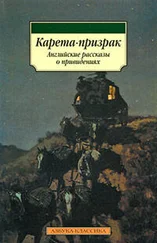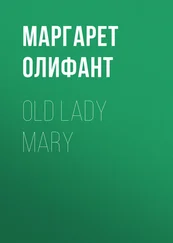Маргарет Олифант - Brownlows
Здесь есть возможность читать онлайн «Маргарет Олифант - Brownlows» — ознакомительный отрывок электронной книги совершенно бесплатно, а после прочтения отрывка купить полную версию. В некоторых случаях можно слушать аудио, скачать через торрент в формате fb2 и присутствует краткое содержание. Жанр: foreign_prose, literature_19, foreign_antique, на английском языке. Описание произведения, (предисловие) а так же отзывы посетителей доступны на портале библиотеки ЛибКат.
- Название:Brownlows
- Автор:
- Жанр:
- Год:неизвестен
- ISBN:нет данных
- Рейтинг книги:5 / 5. Голосов: 1
-
Избранное:Добавить в избранное
- Отзывы:
-
Ваша оценка:
- 100
- 1
- 2
- 3
- 4
- 5
Brownlows: краткое содержание, описание и аннотация
Предлагаем к чтению аннотацию, описание, краткое содержание или предисловие (зависит от того, что написал сам автор книги «Brownlows»). Если вы не нашли необходимую информацию о книге — напишите в комментариях, мы постараемся отыскать её.
Brownlows — читать онлайн ознакомительный отрывок
Ниже представлен текст книги, разбитый по страницам. Система сохранения места последней прочитанной страницы, позволяет с удобством читать онлайн бесплатно книгу «Brownlows», без необходимости каждый раз заново искать на чём Вы остановились. Поставьте закладку, и сможете в любой момент перейти на страницу, на которой закончили чтение.
Интервал:
Закладка:
CHAPTER VI.
AN ADVENTURE
Jack in the mean time was on the ice.
Dewsbury Mere was bearing, which was a wonder, considering how lately the frost had set in; and a pretty scene it was, though as yet some of the other magnates of the parish, as well as Sara, were absent. It was a round bit of ornamental water, partly natural, partly artificial, touching upon the village green at one side, and on the other side bordered by some fine elm-trees, underneath which in summer much of the love-making of the parish was performed. The church, with its pretty spire, was visible through the bare branches of the plantation, which backed the elm-trees like a little host of retainers; and on the other side—the village side—glittering over the green in the centre of all the lower and humbler dwellings, you could see the Stanmores’ house, which was very tall and very red, and glistening all over with reflections from the brass nobs on the door, and the twinkling glass of the windows, and even from the polished holly leaves which all but blocked up the entrance. The village people were in full possession of the Mere without the gêne imposed by the presence of Lady Hetherton or Mrs. Keppel. Fanny Hardcastle, who, if the great people had been there, would have pinned herself on tremblingly to their skirts and lost the fun, was now in the heart of it, not despising young Stanmore’s attentions, nor feeling herself painfully above the doctor’s wife; and thus rosy and blooming and gay, looked a very different creature from the blue little Fanny whom old Lady Hetherton, had she been there, would have awed into cold and propriety. And the doctor’s wife, though she was not exactly in society, was a piquant little woman, and the curate was stalwart, if not interesting, very muscular, and slow to commit himself in the way of speech. Besides, there were many people of whom no account was made in Dewsbury, who enjoyed the ice, and knew how to conduct themselves upon it, and looked just as well as if they had been young squires and squiresses. Jack Brownlow came into the midst of them cordially, and thought there were many more pretty faces visible than were to be seen in more select circles, and was not in the least appalled by the discovery that the prettiest of all was the corn-factor’s daughter in the village. When little Polly Huntly from the baker’s wavered on her slide, and was near falling, it was Jack who caught her, and his friendliness put some very silly thoughts into the poor little girl’s head; but Jack was thinking of no such vanity. He was as pleased to see the pretty faces about as a right-thinking young man ought to be, but he felt that he had a great many other things to think of for his part, and gave very sensible advice, as has been already seen, to other young fellows of less thoroughly established principles. Jack was not only fancy free, but in principle he was opposed to all that sort of thing. His opinion was, that for any body less than a young duke or more than an artisan to marry under thirty, was a kind of social and moral suicide. I do not pretend to justify or defend his opinions, but such were his opinions, and he made no secret of them. He was a young fellow with a great many things to do in this world, or at least so he thought. Though he was only a country solicitor’s son, he had notions in his head, and there was no saying what he did not aspire to; and to throw every thing away for the sake of a girl’s pretty face, seemed to him a proceeding little short of idiocy. All this he had expounded to many persons of a different way of thinking; and indeed the only moments in which he felt inclined to cast aside his creed were when he found it taken up and advocated by other men of the same opinion, but probably less sense of delicacy than himself.
“Where is your father?” said Mr. Hardcastle; “he used to be as fond as any one of the ice. Gone to business! he’ll kill himself if he goes on going to business like this all the year round, every day.”
“Oh, no,” said Jack, “he’ll not kill himself; all the same he might have come, and so would Sara, had we known that the Mere was bearing. I did not think it possible there could have been such good ice to-day.”
“Not Sara,” said the rector; “this sort of thing is not the thing for her. The village folks are all very well, and in the exercise of my profession I see a great deal of them. But not for Sara, my dear boy—this sort of thing is not in her way.”
“Why Fanny is here,” said Jack, opening his eyes.
“Fanny is different,” said Mr. Hardcastle; “clergywomen have got to be friendly with their poor neighbors—but Sara, who will be an heiress—”
“Is she to be an heiress?” said Jack, with a laugh which could not but sound a little peculiar. “I am sure I don’t mind if she is; but I think we may let the future take care of itself. The presence of the cads would not hurt her any more than they hurt me.”
“Don’t speak of cads,” said the rector, “to me; they are all equal—human beings among whom I have lived and labored. Of course it is natural that you should look on them differently. Jack, can you tell me what it is that keeps young Keppel so long about Ridley? What interest has he in remaining here?”
“The hounds, I suppose,” said Jack, curtly, not caring to be questioned.
“Oh, the hounds!” repeated Mr. Hardcastle, with a dubious tone. “I suppose it must be that—and nothing particular to do in town. You were quite right, Jack, to stick to your father’s business. A briefless barrister is one of the most hopeless wretches in the world.”
“I don’t think you always thought so, sir,” said Jack; “but here is an opening and I’ll see you again.” He had not come there to talk to the parson. When he had gone flying across the Mere thinking of nothing at all but the pleasure of the motion, and had skirted it round and round and made figures of 8 and all the gambols common to a first outbreak, he stopped himself at a corner where Fanny Hardcastle, whom her father had been leading about, was standing with young Keppel looking very pretty, with her rose cheeks and downcast eyes. Keppel had been mooning about Sara the night before, was the thought that passed through Jack’s mind; and what right had he to give Fanny Hardcastle occasion to cast down her eyes? Perhaps it was purely on his friend’s account; perhaps because he thought that girls were very hardly dealt with in never being left alone to think of any thing but that confounded love-making; but the fact was that he disturbed them rather ruthlessly, and stood before them, balancing himself on his skates. “Get into this chair, Fanny, and I’ll give you a turn of the Mere,” he said; and the downcast eyes were immediately raised, and their fullest attention conferred upon him. All the humble maidens of Dewsbury at that moment cast glances of envy and yet awe at Fanny. Alice Stanmore, who was growing up, and thought herself quite old enough to receive attention in her own person, glowered at the rector’s daughter with horrible thoughts. The two young gentlemen, the envied of all observers, seemed for the moment, to the female population of the village, to have put themselves at Fanny’s feet. Even Mrs. Brightbank, the doctor’s little clever wife, was taken in for the moment. For the instant that energetic person balanced in her mind the respective merits of the two candidates, and considered which it would be best for Fanny to marry; never thinking that the whole matter involved was half-a-dozen words of nonsense on Mr. Keppel’s part, and on Jack Brownlow’s one turn on the ice in the skater’s chair.
For it was not until Fanny was seated, and being driven over the Mere, that she looked back with that little smile and saucy glance, and asked demurely, “Are you sure it is quite proper, Mr. John?”
Читать дальшеИнтервал:
Закладка:
Похожие книги на «Brownlows»
Представляем Вашему вниманию похожие книги на «Brownlows» списком для выбора. Мы отобрали схожую по названию и смыслу литературу в надежде предоставить читателям больше вариантов отыскать новые, интересные, ещё непрочитанные произведения.
Обсуждение, отзывы о книге «Brownlows» и просто собственные мнения читателей. Оставьте ваши комментарии, напишите, что Вы думаете о произведении, его смысле или главных героях. Укажите что конкретно понравилось, а что нет, и почему Вы так считаете.












